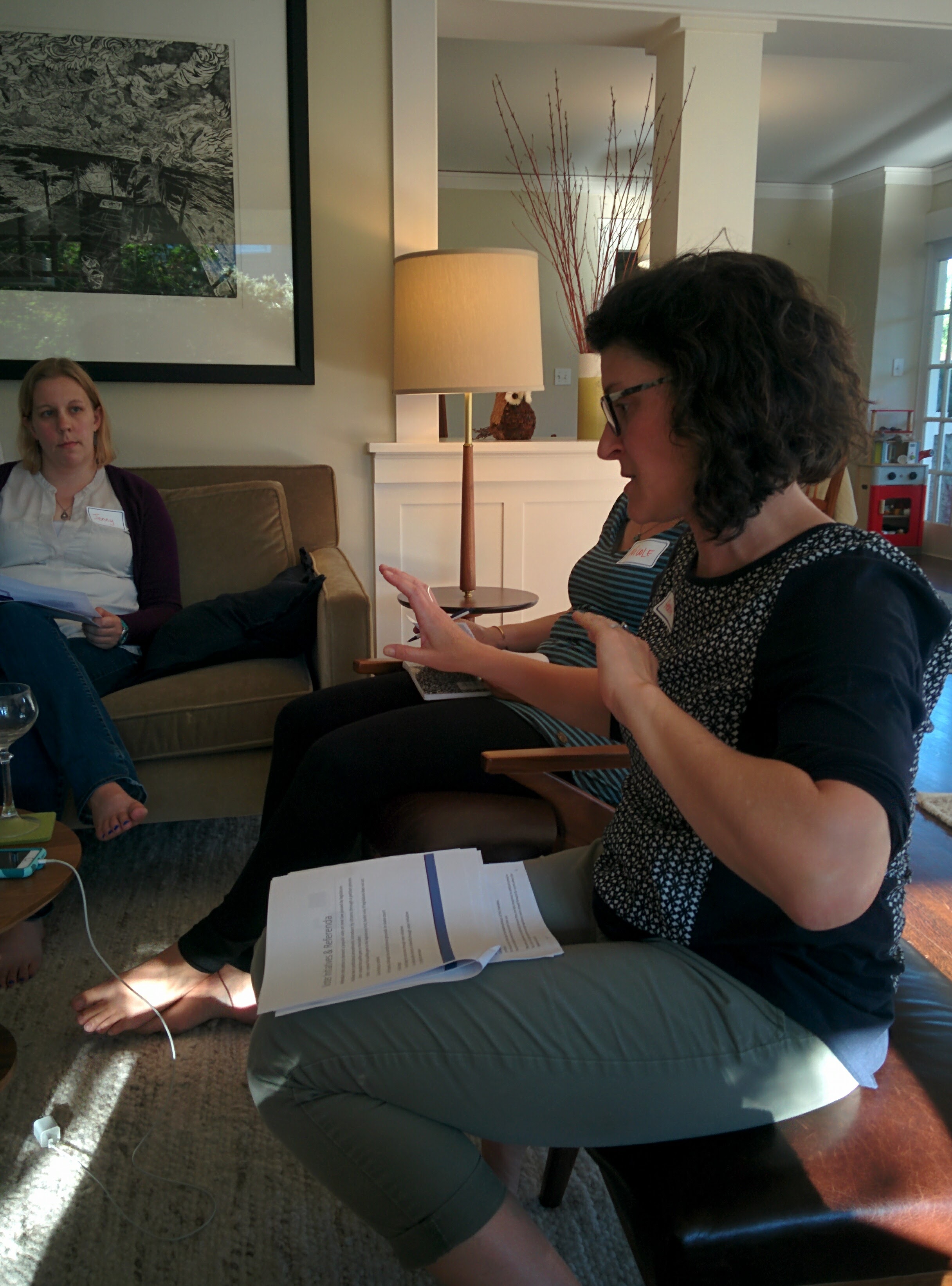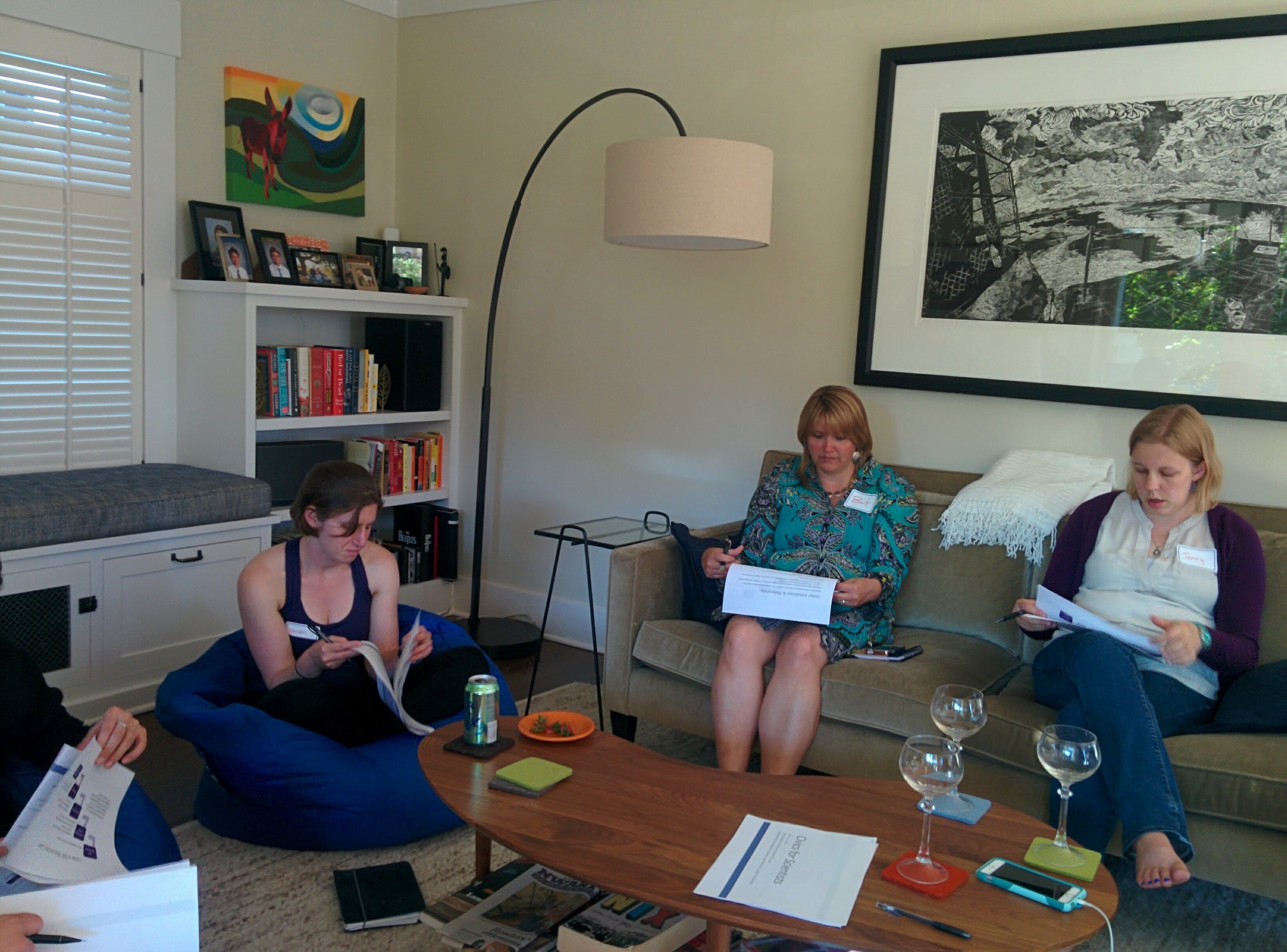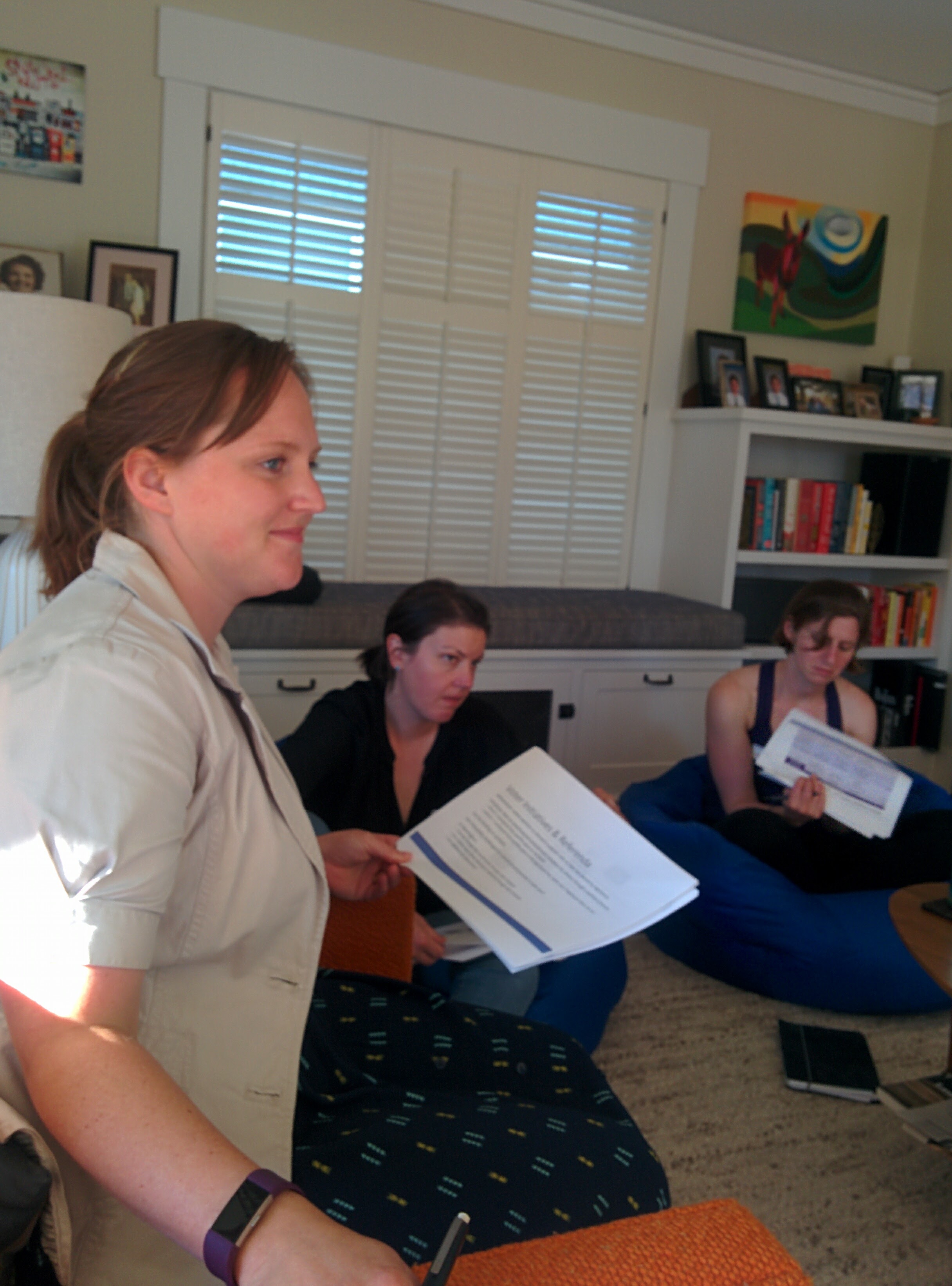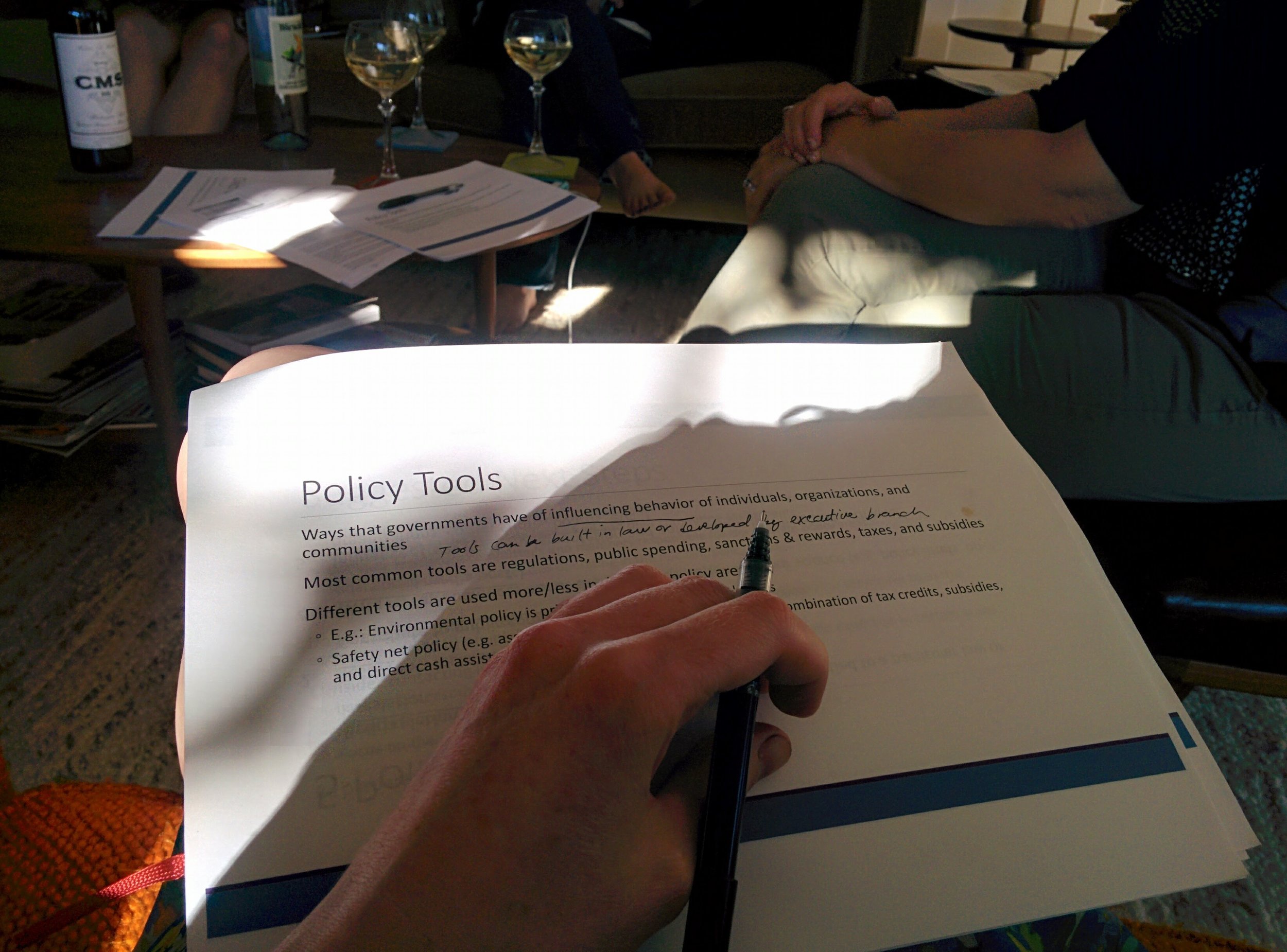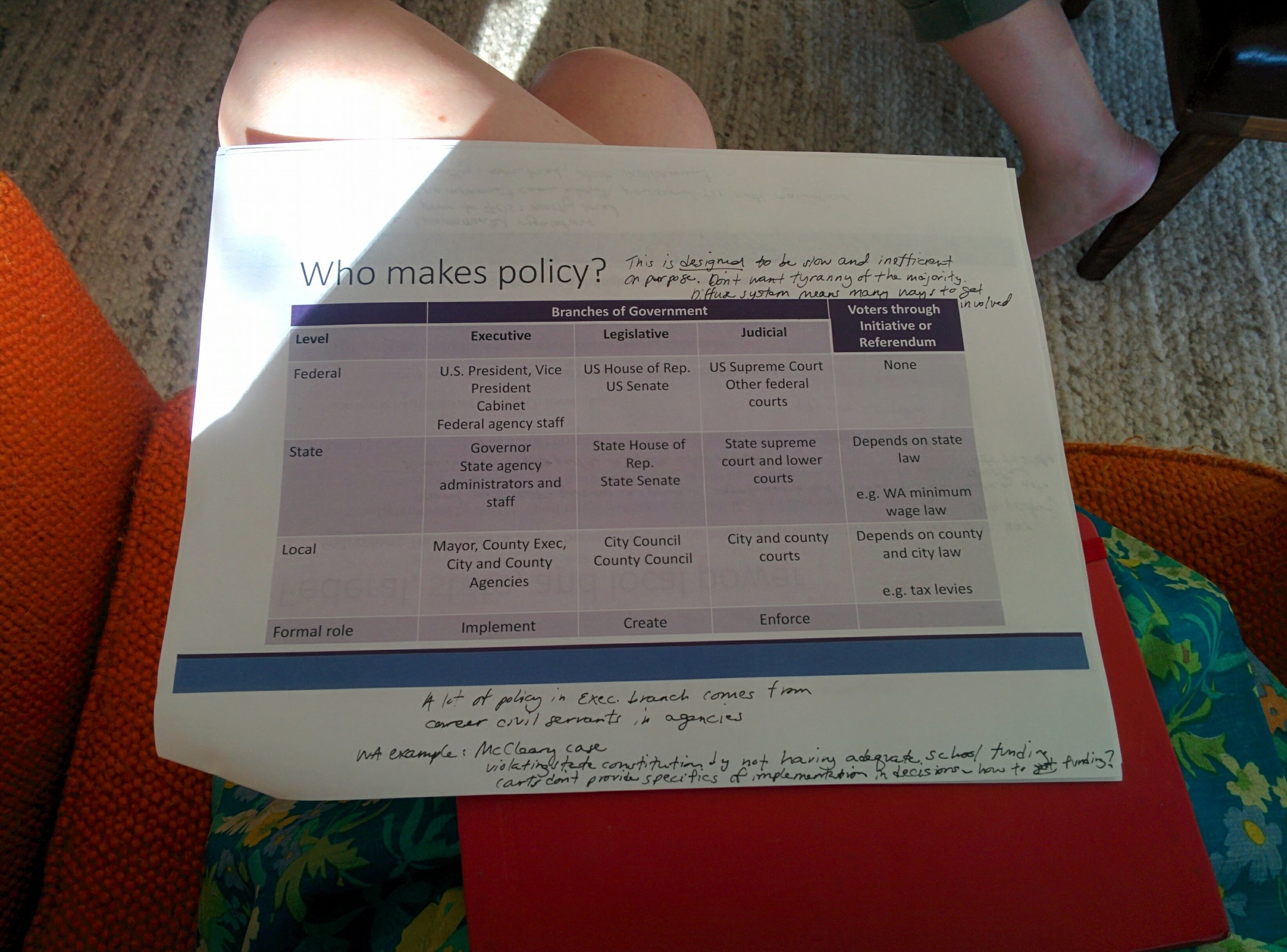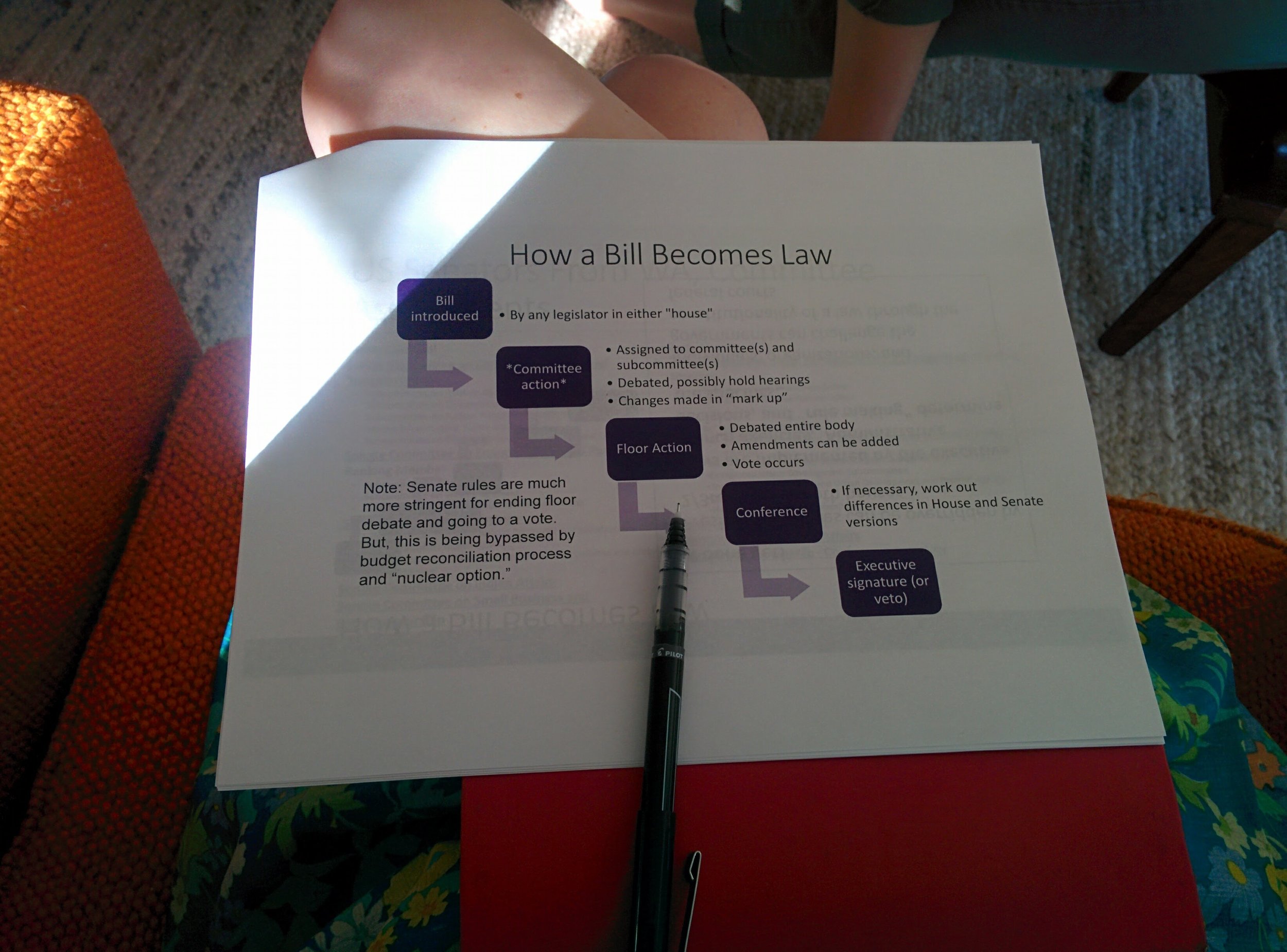Science has never been apolitical. But since the November election, many scientists have become increasingly conscious of their role in the political sphere, and many are eager to become more actively involved. That may mean advocating for more science funding, providing scientific expertise in the policy-process, or even running for office (among many other possibilities).
For those of us who've spent more time in the lab than watching CSPAN or reading bills, getting involved in the political process can seem daunting. To help address that, our pod held a "Civics for Scientists" salon with the goal of clarifying how our members can become more involved in policy, and in what ways. Our event was hosted and facilitated by Dr. Heather Hill, professor in the Evans School of Public Policy and Governance at the University of Washington.
We began with an exercise designed to identify the policy areas we care about, the areas where we have scientific expertise, and the areas where these two spheres intersect. In other words, where can our individual areas of expertise potentially be useful in the policy world? We also discussed the roles we see ourselves playing as scientists and citizens in this process--when do we feel comfortable acting as scientific experts, and when should we take the role of a concerned (non-expert) citizen?
We then discussed the nuts and bolts of policy-making (also known as “everything you forgot from your high-school civics class”). Who makes policy? How do bills get passed? How is power balanced between the local, state, and federal governments?
Finally, we talked about ways that we, as scientists and citizens, can effectively participate in the policy-making process. We ended with discussing a few issues and upcoming events that our members might be interested in.
We hope to hold another version of this salon in the fall, so keep an eye out for that, and feel free to contact us if you'd like to participate in organizing or attending.
